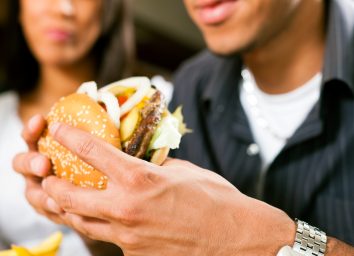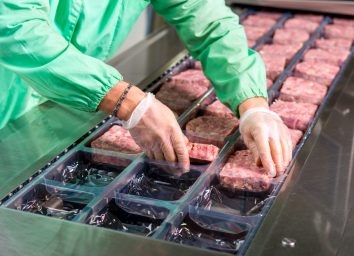5 Truths About Burger Chains That Will Make You Lose Your Appetite
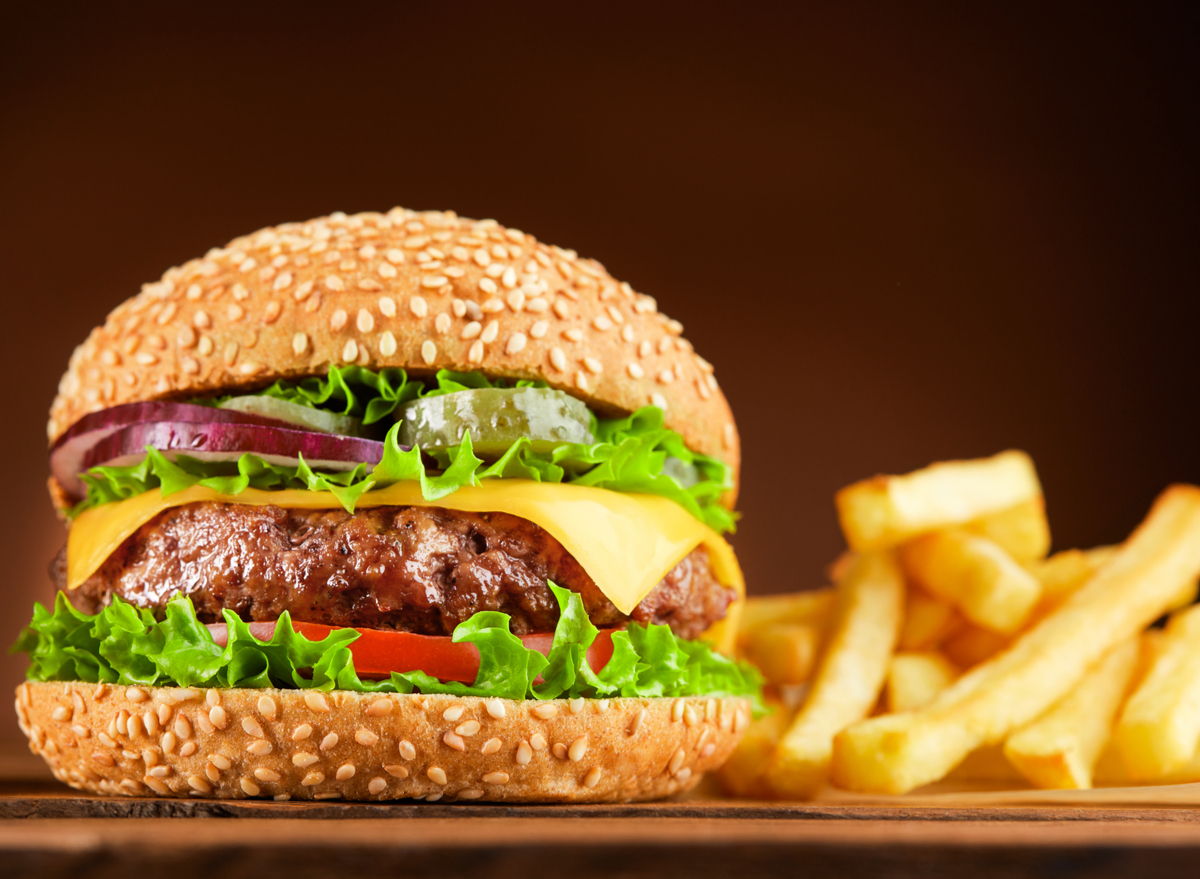
The hamburger is synonymous with Americana, but the origins of the burger predate our nation by a wide margin. The Mongol Empire of the 13th and 14th centuries is best remembered for conquering most of the known world at that point, but they’re also believed to have brought “steak tartare” to Europe.
Steak tartare, essentially a raw ground beef patty, was incorporated into Russian cuisine when the Mongols conquered Kievan Rus in 1237. From there, the recipe eventually made its way to Hamburg, Germany via Baltic trade routes. Somewhere along the line a very smart German decided to cook the beef; and the “Hamburg steak” was born.
Fast forward a few hundred years, and German immigrants traveling to the United States in the 19th century brought the Hamburg steak with them to the new world, where it became a staple of New York City and Chicago restaurants.
Still, a Hamburg steak is a far cry from the types of burgers we see today. Who invented the modern image of the hamburger beloved by so many? It definitely happened in America, but where and when is open to debate. No one is exactly sure who invented the American version of a hamburger.
Some say Louis Lassen of New Haven, Conn. created the first true “hamburger” in 1901 at his Louis’ Lunch Wagon restaurant. According to the story, Louis put together an impromptu sandwich of ground beef placed between two pieces of toasted bread after a busy customer asked for a meal they could eat on the go.
Others will point to “Hamburger Charlie” Nagreen of Seymour, Wisc. in 1885. At just 15 years old, young Charlie quickly realized why his meatball stand wasn’t attracting customers at the local county fair: It’s really hard to eat a meatball while walking around! Fast-thinking Charlie flattened the meatballs and added two slices of bread.
Incredibly, 1885 actually saw another pair of hamburger inventors emerge. Many attribute the first hamburger to Frank and Charles Menches. The brothers decided to use ground beef for their sandwiches after running out of pork at the Erie County Fair. The fair’s location? Hamburg, N.Y.
Perhaps the moral of these multiple origin stories is this: At the end of the day (and around dinnertime) the modern hamburger owes its existence to many. Like a force of culinary nature, it had been brewing for centuries before landing on our plates.
Today, burger chains are big, big business. It’s estimated that McDonald’s sells over 75 burgers per second.
One important factor, however, hasn’t changed: Convenience. Just like Hamburger Charlie’s meatball sandwiches all those years ago, modern burger chains are all about providing a quick and convenient eating experience.
Prioritizing convenience over everything else can also have a negative side. There’s no denying today’s burger chains are turning major profits, but their practices are far from untouchable. Here are some of the more unappetizing truths about the modern-day burger joints.
And don’t miss 4 Burger Chains With the Most Food Quality Complaints.
They’ve found WHAT in the soda?
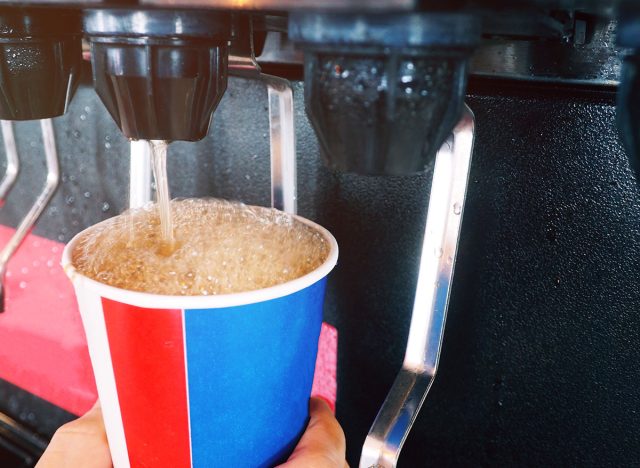
Burger joints are well known for their fountain soda machines, but a pair of research projects tell us you may be better off sticking with a bottle of water. One study published in the International Journal of Food Microbiology discovered traces of coliform bacteria in 48% of tested fast-food beverages in the U.S.
You’ll be even more shocked to learn that coliform bacteria come from feces.
“We obtained soda fountain beverages from a wide variety of fast food establishments and found that a significant number of the drinks had levels of bacteria, including coliforms, which would not be allowed in municipal drinking water,” says study author Dr. Renee Godard, professor of biology and director of environmental studies at Hollins University.
An even more recent investigation by the BBC program Watchdog tested ice cubes collected from 10 random U.K. McDonald’s and Burger King locations. Three of the samples from McDonald’s and six drinks from Burger King came back positive for fecal bacteria.
“Soft serve” isn’t ice cream

Ever notice how burger chains like Dairy Queen and McDonald’s call their frozen menu items “soft serve” instead of just regular old ice cream? That’s because they legally can’t call what they’re selling ice cream.
Per the Foof and Drug Administration (FDA), “ice cream” must be made up of at least 10% milkfat (also known as butterfat), and soft serves fall short in that department.
Here’s what DQ’s own website has to say on the matter: “Technically, our soft serve does not qualify to be called ice cream. To be categorized as ice cream, the minimum butterfat content must be ten percent, and our soft serve has only five percent butterfat content.”
Don’t assume fries are vegetarian
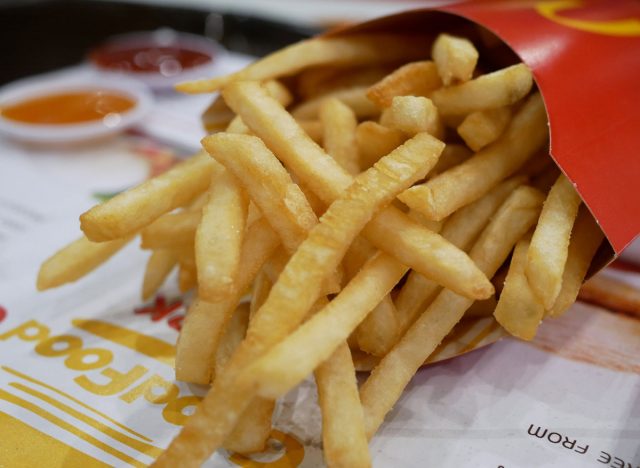
If you’re trying to cut down on your meat intake, a burger chain may be an odd choice for dinner. But, hey, there are plenty of non-meat options on the menu like fries, right? Not necessarily.
McDonald’s ran into some major legal trouble back around 2002 in India for mislabelling their fries and hash browns as vegetarian. In reality, the potatoes were being cooked in vegetable oil containing the “essence of beef.” The class-action lawsuit in India was settled, and McDonald’s pledged to change how they prepare potatoes in India moving forward.
Back home in the U.S., however, it’s a different story. To this day McDonald’s locations in America still serve fries with “natural beef flavor.”
Here’s what a McDonald’s spokesperson had to say on the matter: “With regard to our French fries, any customer in the U.S. who contacts McDonald’s USA to ask if they contain beef flavoring is told, ‘Yes.'” The same McDonald’s representative went on to say, “We have no plans to change the way we prepare our French fries in the U.S. However, it is important to know that our French fries are prepared differently in other countries.”
Further fecal finds

Unfortunately, the soda machine isn’t the only source of possible fecal contamination at burger joints.
Touchscreens are becoming more common at burger chains as they allow you to order your favorite meals with just a few taps of the screen—but always wash your hands after using one of these!
An investigation by Metro in collaboration with London Metropolitan University tested samples collected from 8 U.K. McDonald’s locations. Every single screen tested positive for fecal bacteria.
“We were all surprised how much gut and fecal bacteria there was on the touchscreen machines. These cause the kind of infections that people pick up in hospitals. For instance, Enterococcus faecalis, which is found in the stomach and intestines of healthy humans and other mammals, is notorious for causing hospital-acquired infections,” says Dr. Paul Matewele, a microbiologist at LMU, in a press release.
Many burger chains still use meat with antibiotics
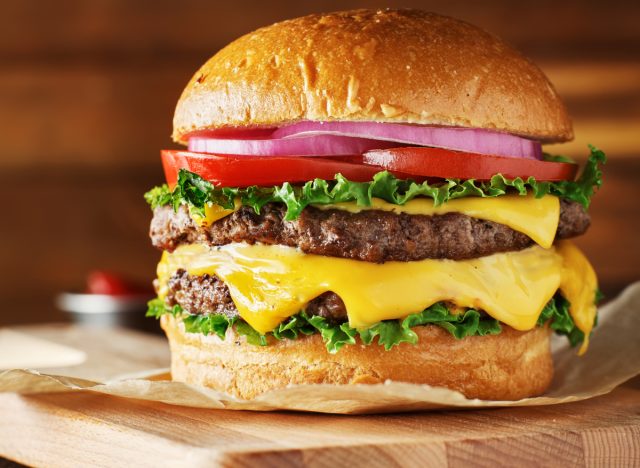
The rise of antibiotic-resistant bacteria is a major health concern. The CDC even calls it one of our planet’s “most urgent public health problems.”
In a nutshell, the agriculture and meat industries have been pumping livestock with antibiotics for decades to keep them healthy and plump. While that in and of itself isn’t a problem, the old saying “everything in moderation” applies here. We’re overdoing it with antibiotics, and it’s leading to new strains of antibiotic-resistant bacteria called “superbugs.”
Considering that over two-thirds of U.S. antibiotics are sold for use in livestock production (about 25% go to cattle production specifically), burger chains and the greater fast-food industry could make a huge difference in curbing the superbug problem by serving antibiotic-free meat.
The 2021 NRDC Chain Reaction report graded 20 of the top U.S. casual dining and fast-food brands on their antibiotic policies. Four burger chains earned an “F” rating for “taking no action to reduce antibiotic overuse in their beef supplies,” and they were Burger King, Jack in the Box, Dairy Queen, and Sonic.
Meanwhile, McDonald’s and Wendy’s earned a “C” grade for at least committing to reducing the amount of antibiotics in their food in the coming years.

